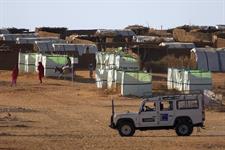The aid sector has not done enough to acknowledge its historical links to colonialism and needs to work to repair its relationship with the people it serves, according to the academic Khadijah Diskin.
Speaking at the BAME Fundraising Virtual Conference 2021 yesterday afternoon, Diskin, who is a PhD candidate at Manchester Metropolitan University, said that if aid charities did not acknowledge their histories they were likely to be repeated.
She said that the history of philanthropy and aid in the global south was “explicitly tied to colonisation of the global south”.
Historically, she said, missionaries and colonial philanthropists often viewed poverty and need in the global south not as products of colonial powers extracting resources, but as accidents or consequences of the inferiority of colonised people, who needed saving.
“There has been very little attempt by the aid sector to acknowledge this history and attempt to restore and repair these complex histories,” she said.
In order for the unequal power dynamics and the colonial history of aid and philanthropy to be challenged, Diskin said, the sector needed to first recognise the issue.
“Any anti-racist organisation that does not acknowledge its role, its history and its mistakes is bound to repeat those mistakes,” she said.
The second task would then be to “repair the relationship with colonised people by allowing them to guide and lead” the work of aid organisations at every opportunity.
“Very often when we sit in the context of the global north and exist within these organisations, we assume we have the most knowledge and that this work is not being done by anyone but us,” she said.
“The reality is there are people on the ground doing this grassroots work and very often when we come in with this paternalism and we-know-the-most-act, we destabilise the work that’s been happening for years, and the people who know their own context, who have been working often with very little resources.
“We take the attention from them and we often use misguided approaches to engage with the community.”
Diskin said aid charities would also need to restore trust by giving the people they worked with the resources to be able to do the work themselves.
“That doesn’t just mean training, which too often is what we think of; sometimes that is material resources, so making sure they have food, clothing and water,” she said.
Diskin pointed out this might mean aid organisations based in the global north needed less of a presence on the ground, which would end the “infection of gap year students” and stop those in the north “viewing the work of aid in the global south as something like a tourist mission”.
She said: “We need to give people what they materially need – we don’t always need to be there to do that.
“We can often do the best work of challenging poverty, global inequality and neocolonialism by holding our own government and organisations’ feet to the fire.”
Often, she said, this could be done from the global north, from within organisations.
“We have to demand […] that organisations take more of a stance in not continuing these systems of extractive labour and exploitation of the global south,” she said.
